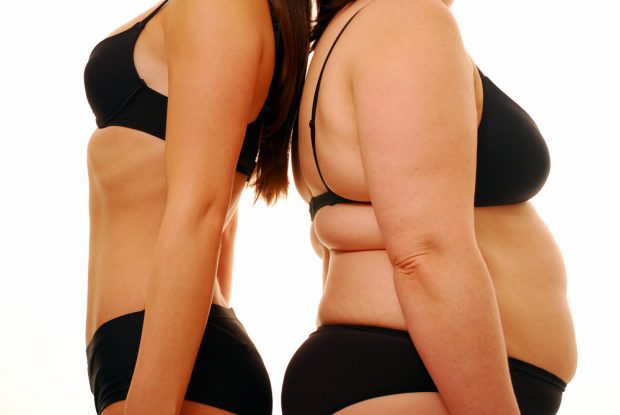South African women are facing a huge obesity crisis, with almost 70% now considered overweight or obese. This increases their risk of non-communicable diseases like heart disease, diabetes, and many cancers.
Rene Schickerling, Women’s Health Category Manager for Pharma Dynamics, says people who are obese have a 50 to 100% increased risk of premature death from all causes compared to those who are within a healthy weight range.
“If younger women don’t start trimming down, they could become the first generation in South Africa’s country’s history to live shorter lives than their mothers. It’s imperative that we change the course of the obesity epidemic.”
Schickerling adds that obesity is a complex disease, and many factors play a role, such as genes, metabolism, age, medicine, sleep, diet, inactivity, and so forth. While obesity affects men and women differently, due to biological, socioeconomic, and cultural disparities, the condition is more prevalent among women.
Obesity Rates in South African Women
South Africa is one of the countries with the highest obesity prevalence, with a projected increase in obesity by 47.7% in females and 23.3% in males by 2025.
Schickerling says carrying excess weight has many downfalls, especially for women.
“It increases their risk of breast, endometrial, gallbladder, oesophageal, and renal cancer. Their reproductive health also suffers, often leading to miscarriages, higher maternal and neonatal mortality rates, and congenital malformations. Depression and anxiety are also linked to obesity.”
Obesity Affects Earnings Potential
“Aside from ill health, being overweight also affects a woman’s earning potential,” says Schickerling.
According to studies conducted by economists globally, obese women get paid less than their trimmer counterparts. Interestingly, this doesn’t seem to impact men in the same way. There was little difference in salaries between men, regardless of their weight.
Schickerling cites a study that found that a 30 kg increase in a woman’s weight is associated with a 9% drop in salary — a penalty equivalent to about three years of work experience.

hartphotography/shutterstock
In aggregate, obesity is a major risk factor for physical disability, negative bias, and discrimination. So, where do you go from here?
Addressing Obesity
“The good news is that even a small amount of weight loss can help lower a woman’s risk of health problems,” says Schickerling.
She adds that losing 5-10% of your body weight can make a big difference. If you’re not sure where to start or how much weight you need to lose, Schickerling suggests speaking to your doctor, who will suggest a healthy eating plan and an exercise regime within your budget.
“Starting your weight loss journey with more than just diet and exercise. It also depends on your age and weight. Younger women are more likely to lose weight quicker than postmenopausal women. Working with your healthcare practitioner and setting reasonable goals is key to your success. Realize that it takes time to see results.”
Healthy tips for weight loss
If you’re struggling to lose weight, you may just need to make a few small tweaks. Here follows Schickerling’s advice:
1. Consume quality calories. It’s no good just cutting calories. You need to pay attention to what you eat as well. Sugary food digests quickly, so you’ll be hungry soon after. In contrast, healthier foods that are rich in fiber, like fruit and vegetables, whole grains, and legumes will make you feel fuller for longer.
2. Keep a diary of what you’re eating. We tend to underestimate poor diet choices. Keeping track of what you’ve eaten eliminates the bias we have toward ourselves and will help you make healthier meal decisions.
3. Choose plant-based protein over meat. Not all protein is created equal. Eating too much animal protein, especially red meat, which contains more fat, can lead to weight gain. Instead of a beef burger, try a plant-based burger made from black beans, mushrooms, or other vegetables. There are so many delicious vegetarian recipes that you can try. Once you’ve made the mind shift, your body will thank you!
4. Incorporate more whole foods. The Mediterranean diet includes plenty of whole foods like fruit, vegetables, grains, and lean meats like fish and chicken that are associated with better weight-loss results than processed food (pre-packaged meals, cereals, and crackers).
To make it easier, make sure you have oats, whole-grain bread, eggs, frozen fish or chicken, and leafy greens in the fridge. It’s so easy to add boiled eggs and/or grilled fish/chicken to a salad or a handful of spinach to omelets or soups. Instead of snacking on salty or sugary treats, swap these for fresh fruit.
5. Is your workout intense enough? If your goal is weight-loss, you need to train at a certain intensity. Try spinning, Cross Fit, GRID, or HIIT workouts that will boost your heart rate and make you sweat.
6. Cut sugary beverages. You’re unlikely to lose weight if you’re still consuming fizzy drinks that contain a lot of sugar. Try to cut it out completely. If you crave a sweet drink, make iced tea. Herbal tea, like Rooibos, doesn’t contain any tannins or caffeine and is virtually calorie-free. If it’s still not sweet enough, add a splash of fruit juice.
7. Get enough Zsss. Not sleeping enough disrupts your circadian rhythm, which can lead to weight gain. So make sure you clock in 7-8 hours a night.
8. Stay active. Having a desk job makes it more difficult to be active during the day and not being active, makes it harder to lose weight. Make a point of getting up and walking every hour – even if it’s just for a few minutes.
Take the stairs instead of the lift. Walk instead of driving to grab some lunch. Stand up or walk while making or taking calls on your cell phone. Exercise either before or after work, or try squeezing in a workout during your lunch break.
9. Portion control. Watch how much you eat, even if it’s healthy food, portion control is key.
10. Drink enough H2O. Double up on your water intake. It’ll make you feel full, thereby helping you to shed the kilos faster.
But what if you’re doing everything right and the weight just isn’t coming off?
According to Schickerling, certain medications could cause weight gain as a side effect. Try speaking to your doctor about possibly switching to another brand, or maybe the dosage could be amended to reduce the side effects.
If you’re not on any medication, and you’re still struggling, Schickerling advises that consult your doctor on the use of phentermine hydrochloride which your doctor can prescribe, in conjunction with an approved exercise plan, behavioral changes, and low-calorie diet.
“These medications work by suppressing your appetite, thereby limiting the calories you eat. However, the best results are achieved when the treatment is combined with healthy eating, regular exercise, and other lifestyle modifications, such as quitting smoking and limiting alcohol intake.“
MAIN IMAGE CREDIT: Photo by Julia Larson
Want to know more?
For the longest time, the coexistence of food insecurity and obesity was labeled a paradox. But now, the link between the two is undeniable.





![women [longevity live]](https://longevitylive.com/wp-content/uploads/2020/01/photo-of-women-walking-down-the-street-1116984-100x100.jpg)









